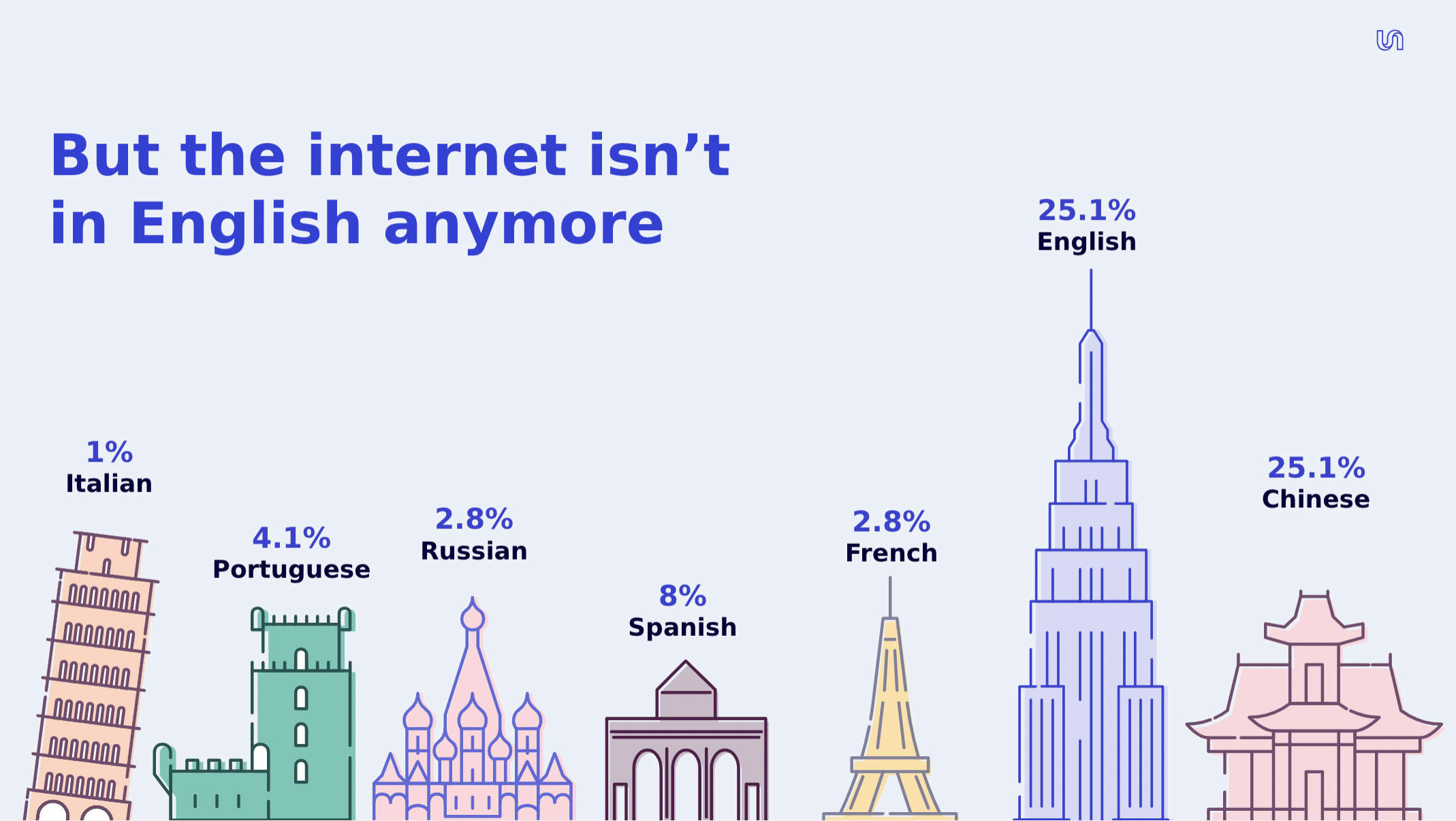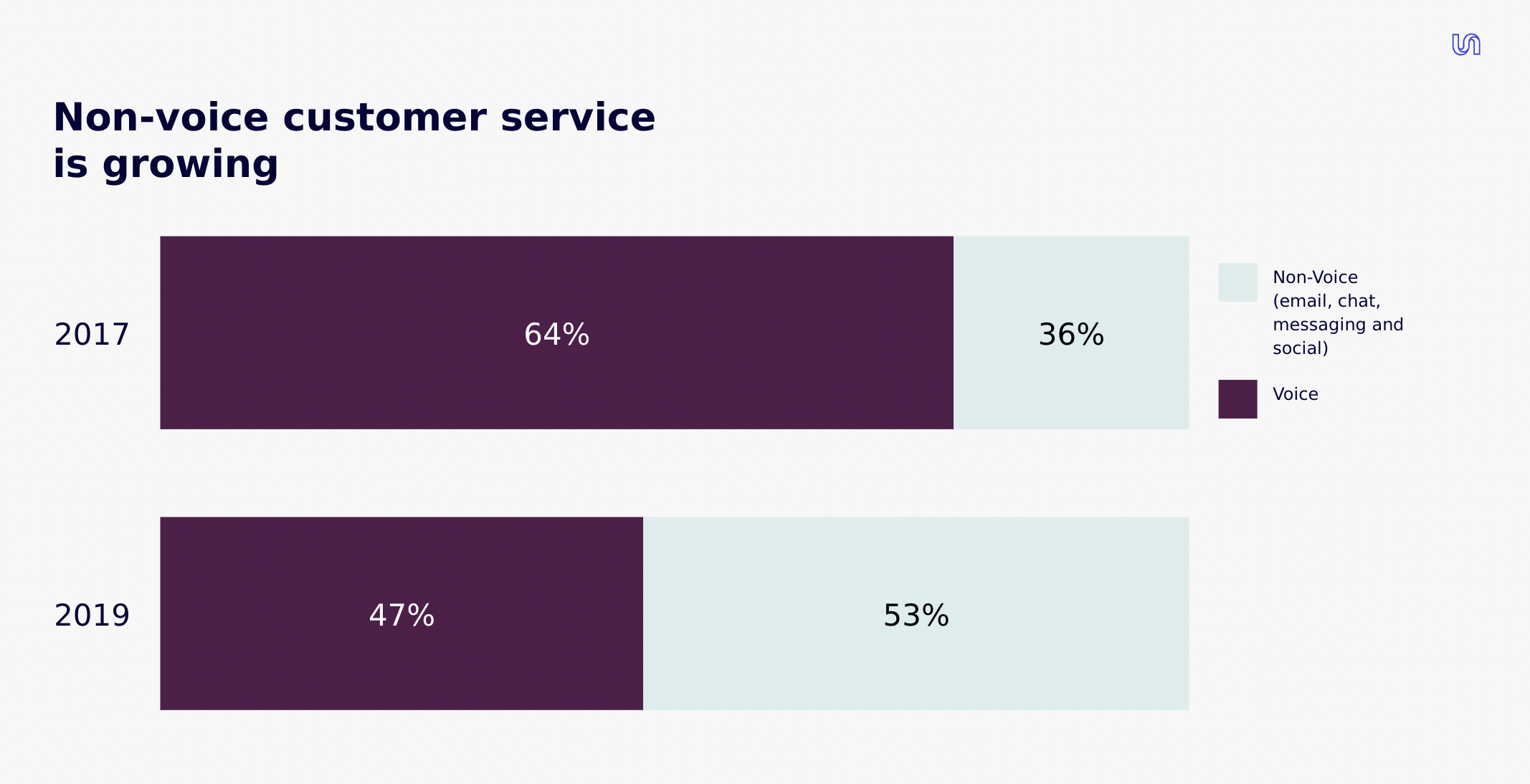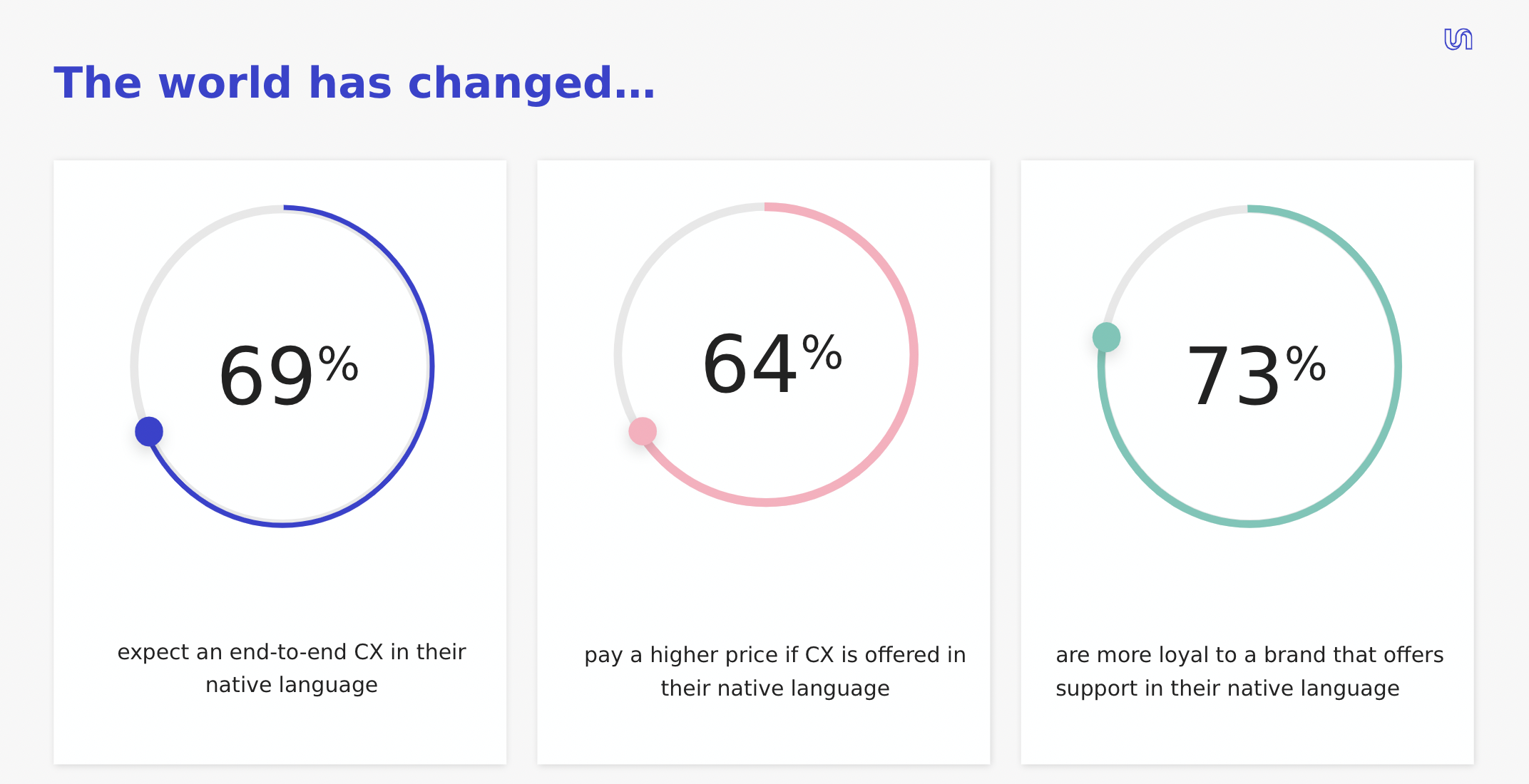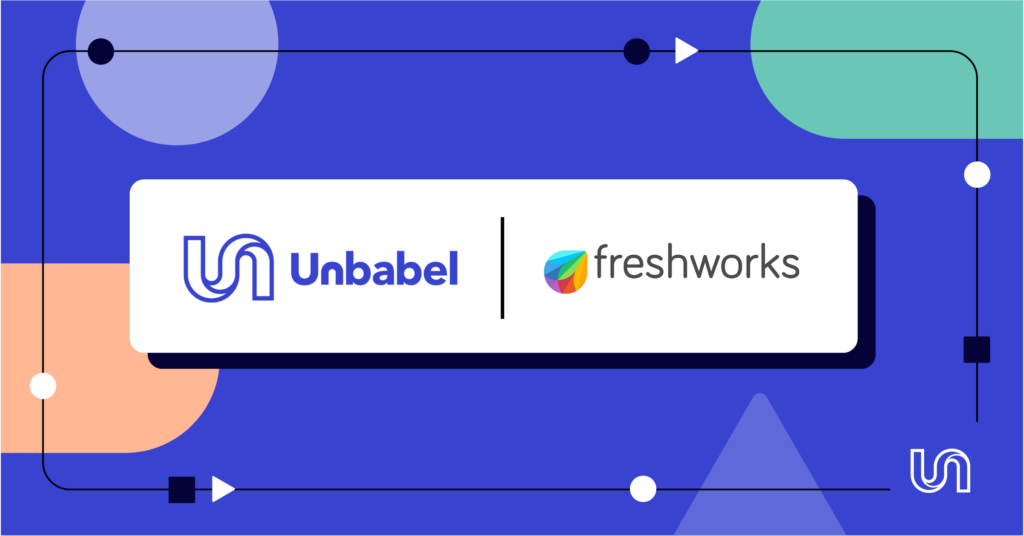According to research, 86% of customers are ready to shell out more if the brand meets or exceeds their expectations at every touchpoint across different channels. With that in mind, E-commerce and other businesses globally need to adopt smarter conversation strategies to attract, convert and engage customers — and one place to start is with the language they speak.
We’ve shared the recipe below to keep your customers satisfied across all languages and markets, from Unbabel’s Michelle Merkl’s masterclass at Freshworks’ E-commerce Bootcamp 3.0, including:
Current and upcoming trends in CX
The mounting customer expectations
Plus, how to deliver great multilingual CX with Unbabel’s Freshdesk integration
Current and upcoming trends in CX
It’s a multilingual world: Only 25.1% of online content is now in English, compared to 80% in 1996. Today, Chinese (25.1%), Spanish (8%), and Portuguese (4.1%) are all part of the mix.

Yet, when polled, Michelle’s audience wasn’t fully aware of the extent.
50% thought three-quarters of the internet was in English
29% thought half the internet was in English
21% thought a quarter of the internet was in English
Companies that act on this shift in language are reaping the rewards: Unbabel’s gaming customers have found that when they branch out from English only, and localize the game into the player’s native language, it can boost in-app purchases. 26% of Wargaming customers converted from using the free version of the game to the paid subscription when it became available in their language.
Michelle didn’t just clue attendees into the change-up in languages, but also noted that customers’ channel preferences for customer support are changing. In 2019, 53% of customers used non-voice (email, chat, messaging, and social) rather than voice (phone), which is up 17% since 2017.

Global customers want consistent service across the channels they choose. Lockdowns during the COVID-19 pandemic seem to have played a part in shaping current consumer behavior: 87% of service professionals say customers increased their use of digital channels, and 59% of service leaders say the pandemic raised their customers’ standards.
The mounting customer expectations
Customer expectations have never been higher, and new demands are emerging. Customers are also looking for more flexibility in the customer support dialogue: Taking the conversation at their own pace, keeping the discussion open-ended, and more mobile-friendly options. With this uptick in customer expectations, more companies may look to artificial intelligence to help answer some questions, especially those that might be easily solved with a knowledge base article.
Consumers want asynchronous support across all channels, and they also want a self-service option — from quick guides and solution articles to FAQs and multilingual knowledge bases. Or even a fully-fledged customer portal or support portal. Personal interactions are also on the rise: Agents are expected to know about the customer from the get-go, leaning on customer history and context for knowledge, and this customer support needs to be delivered in the buyer’s preferred language.

This all only adds more pressure to businesses: With these expectations and expanding channels, it’s increasingly difficult for support agents to reply and resolve issues quickly. Many companies look to scale up their support teams as one way to quickly deliver multilingual service across all their channels. But increasing headcount is costly, and can also lead to complications in training, retention, and delivering quality support consistency across all customer channels. There is, however, another way.
Deliver great multilingual CX with Unbabel’s Freshdesk integration
Freshdesk users can scale up their multilingual customer support through Unbabel’s plug-and-play integration. It provides fast, native-quality translations without interrupting your support desk and ticket field workflow.
The consumer can contact customer support through their preferred channel. The support agent automatically receives inbound tickets, and replies, in their primary language, which is then translated to the customer’s selected language. Unbabel automatically detects the language and delivers a two-way street of translated content through streamlined automation and an AI-powered, human-refined pipeline.
This way, the customer doesn’t need to wait for language support — the right agent for the job can be the next one available. Unbabel’s API helps companies support customers and manage languages, all from their Freshdesk account, without affecting their CX KPIs.
Using Unbabel’s Freshdesk integration has helped many global companies boost their CX scores. Naturally, CSATs are the first metric you want to monitor when reducing costs; but Unbabel customers find using Unbabel for Freshdesk matches or increases their CSATs from native agents. Equally, using Unbabel’s rapid translation turnaround times and seamless Freshdesk integration into the agent workflow matches or improves FRT and AHT. Translating customer support with Unbabel also unlocks operational savings and improves TCO.
Plus, when scaling into new markets, businesses don’t need to increase their headcount to expand their supported languages, add a new language or deliver omnichannel growth.
See how Unbabel can make your Freshdesk multilingual. Learn more about our integration here:












